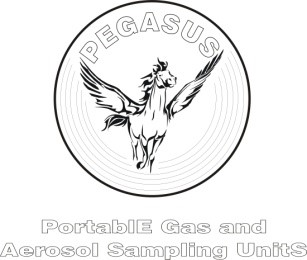PEGASUS

The PEGASUS mobile platform
PEGASUS (Portable Gas and Aerosol Sampling UnitS) mobile field platform, a set of two mobile laboratories for sampling and analyzing aerosols and atmospheric gases. This development has received financial support from the Université Paris-Est Créteil, the Région Ile de France, the CNRS-INSU, and the Conseil Général du Val de Marne. Its development was also made possible by strong technical support from the Technical Department of the CNRS-INSU (DT-INSU).
Since 2021, PEGASUS is a national instrument of the CNRS-INSU.
PEGASUS is composed by two air-conditioned, energy-independent modules in marine container format, which can be used independently of each other.

A first workspace, named "Observatory".
It is dedicated to the in situ sampling and characterization of aerosols and gaseous compounds. The coupling of particle-phase and gas-phase measurements is designed to document the air quality of the air mass carrying the aerosols, and to enable the study of the multiphase processes involved in their ageing. This area is equipped with aerosol collection systems based on isokinetic inlets developed at LISA.


The "Laboratory: The second module of PEGASUS".
In order to reduce the artifacts that can result from prolonged storage and transport of samples between the field and the laboratory, it has become essential to analyze samples on site - with the same quality of environment as in the laboratory, despite the often difficult conditions in the field. This is an area equipped with a laminar flow hood to limit the dusting of collected samples. The laboratory is also equipped with a water purification system, a refrigerator and a deep-freezer, as well as for a Sunset-type thermo-optical analyzer for speciation of the carbon fraction.

Contact : Paola Formenti (This email address is being protected from spambots. You need JavaScript enabled to view it. ) (LISA)
Site web: https://pegasus.aeris-data.fr/
This development has received financial support from the Université Paris-Est Créteil, the Région Ile de France, the CNRS-INSU, and the Conseil Général du Val de Marne. Its development was also made possible by strong technical support from the Technical Department of the CNRS-INSU (DT-INSU).

